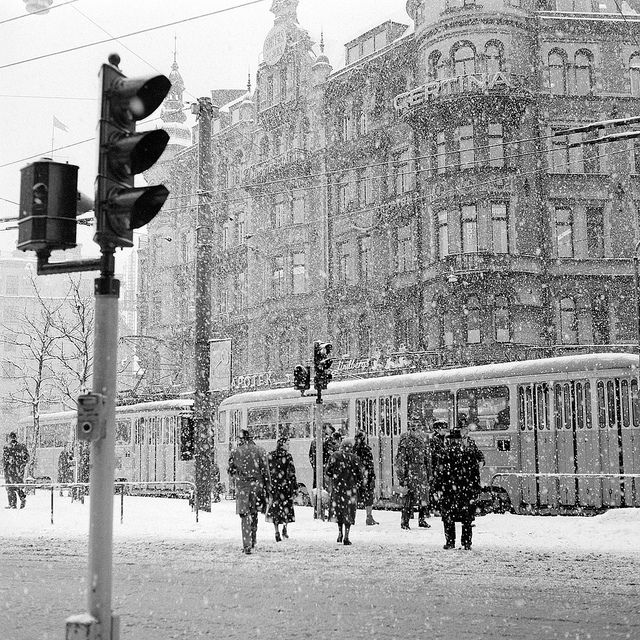In Swedish cities, the approach to snow removal used to be pretty similar to the way it is in the United States.
First cities would plow major highways. Then they would plow big surface streets, especially near large employers. Last, they would clear walkways and bike paths.
But after analyzing government services through a process known as "gender-balanced budgeting," many Swedish cities, including Stockholm, prioritize snow clearance very differently. They now clear walkways and bike paths first, especially those near bus stops and primary schools. Next, they clear local roads, and then, finally, highways.
The Swedish Association of Local Authorities and Regions explains it all in this English-language video:
An analysis of Sweden's snow clearance practices showed that it disadvantaged women, who were more likely to walk, while employment districts where men predominantly worked were more likely to have streets plowed first.
Not only was the impact of snow clearance priorities discriminatory, there were negative consequences for society as a whole. Three times as many people are injured while walking in icy conditions in Sweden than while driving. And the cost of those injuries far exceeds the cost of snow clearance.
So the order was reversed. Municipalities faced no additional cost for clearing pedestrian paths first. And it reduced injuries, in addition to being objectively fairer.
Now Canadian officials are interested in importing the idea of gender-balanced budgeting, the CBC reports, which is expected to be a hot topic when world leaders gather in Davos this week.






